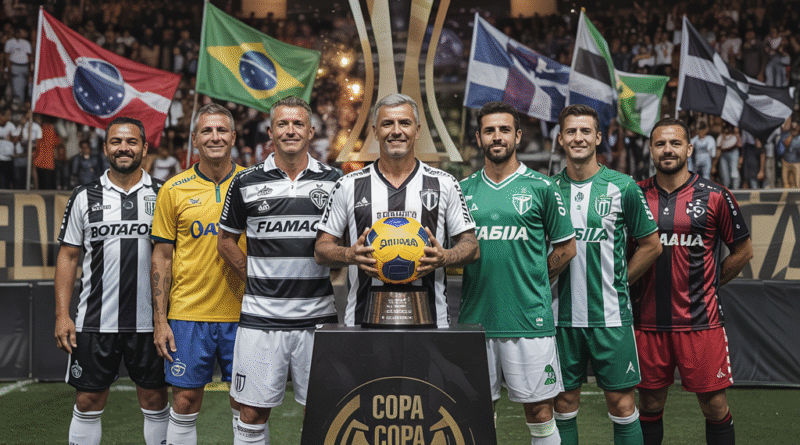Brazil Confirms Seven Clubs in Libertadores 2025 Group Stage, Solidifying Regional Dominance
With the official group draw complete and match calendars released, Brazil will once again be heavily represented in the 2025 Copa Libertadores, with seven clubs confirmed in the group stage — more than any other country. This not only highlights the depth of Brazilian club football, but also reaffirms the nation’s dominance in South American competitions.
The participating teams are: Botafogo, Flamengo, Palmeiras, São Paulo, Internacional, Fortaleza, and Bahia — all coming off strong domestic campaigns or cup successes.
A Stacked Brazilian Lineup
Each of the seven Brazilian teams brings a unique style, history, and recent form into the tournament:
- Botafogo enters as the reigning Campeonato Brasileiro champion, under new management following Artur Jorge’s departure. Their high-pressing, fast-tempo game stunned fans in 2024, and expectations remain high despite the transition.
- Flamengo, with its deep squad and continental experience, returns seeking to reclaim continental glory after falling short in recent seasons.
- Palmeiras, led by Abel Ferreira, continues to be one of the most consistent teams in South America, having reached at least the semifinals in three of the last four editions.
- São Paulo, historically dominant in international competitions, is back with a squad featuring both veteran leaders and emerging stars.
- Internacional, rejuvenated with a new coaching staff, impressed in the Copa do Brasil and now turns its attention to continental competition with confidence.
- Fortaleza, known for its tactical discipline and organized defensive lines, qualified after a standout performance in the Série A.
- Bahia, returning to the Libertadores after years away, qualified through the Copa do Nordeste and is seen as the dark horse among the Brazilian sides.
The Group Draw: Favorable, but Not Easy
While many Brazilian clubs were seeded as top-ranked teams based on CONMEBOL’s coefficient, the draw still produced some challenging matchups.
Botafogo will face traditional South American rivals from Argentina and Uruguay, while São Paulo and Fortaleza have been drawn into groups with altitude challenges in Bolivia and Ecuador. Flamengo and Palmeiras will see familiar faces from previous tournaments — a reminder that no group in the Libertadores is ever truly “easy.”
Analysts agree that Brazil has the depth to see most of its representatives through to the knockout stages, but the early rounds will demand focus and squad rotation.
Brazil’s Regional Dominance Continues
Since 2019, Brazilian clubs have won every edition of the Copa Libertadores, including all-Brazilian finals in three of those years. The presence of seven clubs in 2025 only strengthens the country’s grip on the competition.
CONMEBOL data reveals that Brazilian teams also generate the highest audience figures, largest gate revenues, and strongest commercial returns among all participating nations — further consolidating Brazil’s leadership position on and off the field.
Tactical Diversity and Coaching Strength
What makes this current generation of Brazilian teams especially dangerous is the tactical diversity across the clubs:
- Palmeiras relies on structured possession and width.
- Botafogo thrives on vertical transitions and counterattacks.
- Flamengo utilizes high pressing and individual flair.
- Fortaleza and Bahia focus on compactness and direct play.
Each club brings a unique footballing identity, shaped by experienced managers and rich club cultures — making Brazilian teams adaptable to the wide tactical range of the Libertadores.
Pressure to Deliver
With dominance comes expectation. Fans and media alike expect at least one Brazilian club to reach the final, if not win it outright. For some clubs like Bahia and Fortaleza, advancing to the knockout stage would already be a major success. For giants like Palmeiras and Flamengo, anything less than a semifinal would be considered underwhelming.
Coaches are preparing their squads for intense travel, altitude, and hostile away environments — all common factors in Libertadores play.
Conclusion: The Road to Glory Begins
As the 2025 Copa Libertadores kicks off, Brazil stands as the powerhouse of South American club football. With seven strong contenders, the nation enters the tournament with both opportunity and pressure. Each team represents a different story, a different strategy — but together, they share a common goal: to keep the trophy on Brazilian soil.
The continent will be watching. And once again, the road to glory may very well run through Brazil.
